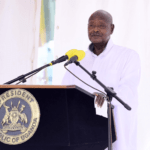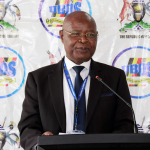Uganda’s population has increased to 45.9 million people, the just-released 2024 national census results indicate.
On May 10, the Uganda National Bureau of Statistics kicked off the technologically driven National Population and Housing Census (NPHC). The first day of enumeration, May 10, 2024, was approved a Census Public Holiday by the Cabinet and declared by the President to ensure easy recall of the Census Night during the period of enumeration.
The National Population and Housing Census was last conducted in 2014. At that time, Uganda had a population of 34.6 million people. The census is carried out every 10 years, and this year’s exercise was expected to take place on August 24 and 25, but it was postponed due to the delayed procurement of tablets.
Released by President Yoweri Museveni, the census results indicate that the country’s population has increased by 11.3 million people since 2014.
The census results indicate that the number of households has increased from 7,245,245 in 2014 to 10,845,119.
It further shows that Uganda is a young country, with children (0–17 years old) constituting 50.5% of the total population, youth (18–30 years old) at 22.7%, older persons (60+) at 5.0%, and the working-age population (14-64 years old) at 55.6%.
They indicate that Kampala toped all the regions with 11.1 million people, followed by Busoga with 4.4 million, West Nile with 3.9 million, Ankole with 3.6 million, Toro with 3.4 million, Bunyoro with 2.8 million, Lango with 2.6 million, Teso with 2.5 million, Bukedi with 2.4 million, Elgon with 2.2 million people, and others.








